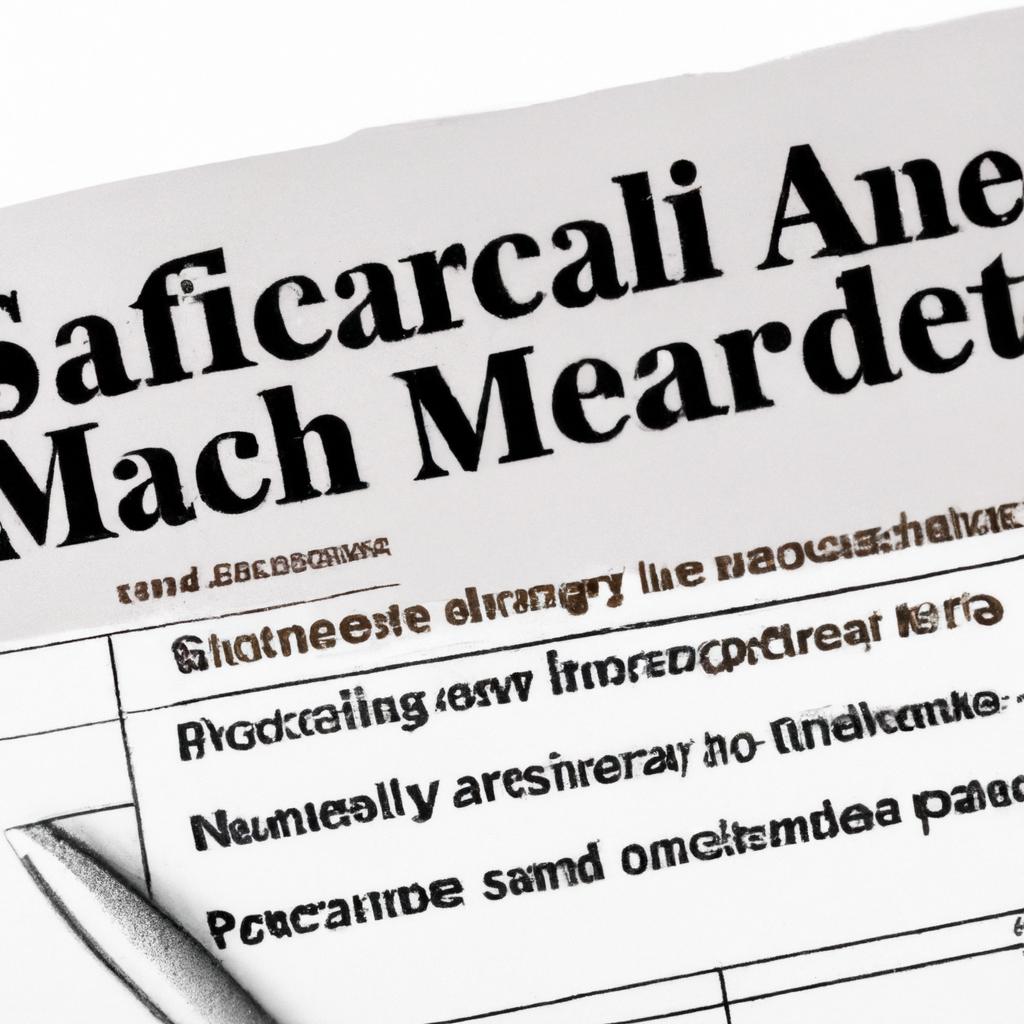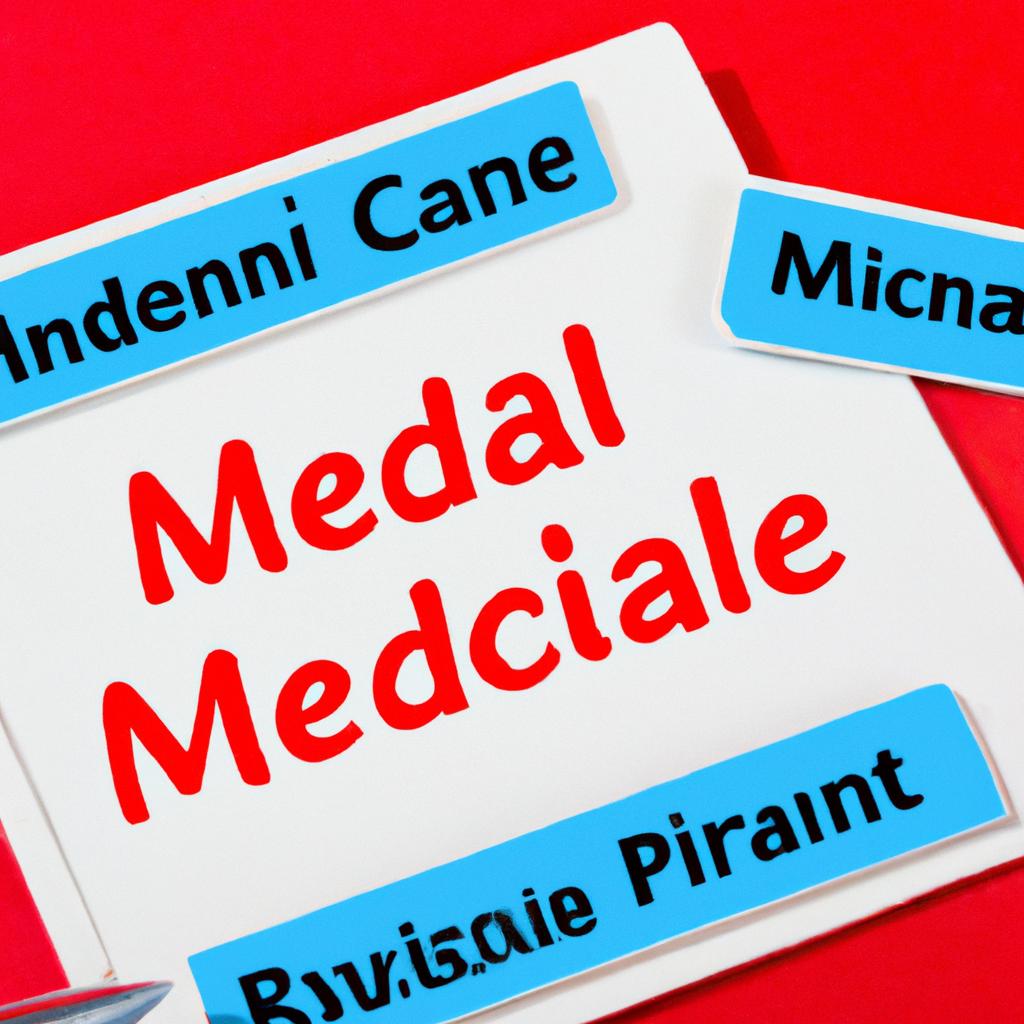As seasoned legal experts at Morgan Legal Group, located in bustling New York City, we understand the importance of safeguarding your hard-earned assets from potential pitfalls, including those posed by Medicare. In this article, we will delve into the intricacies of protecting your assets from Medicare, providing insightful guidance and strategies to ensure your financial well-being remains intact. With our extensive expertise in estate planning, probate, elder law, Wills, and trusts, rest assured that your assets are in capable hands. Join us as we navigate the complex terrain of asset protection in the realm of Medicare with precision and expertise.
Strategies for Safeguarding Assets from Medicare Claims
When it comes to safeguarding your assets from Medicare claims, there are several strategies that can help protect your hard-earned wealth. One effective method is establishing an irrevocable trust, which can shield assets from being counted towards Medicaid eligibility. By transferring assets into this type of trust, you can ensure that they are protected and preserved for future generations.
Another valuable strategy is gifting assets to loved ones, as long as it is done within the appropriate timeframe and in compliance with tax laws. This can reduce the value of your estate and lower the risk of losing assets to Medicare claims. Additionally, purchasing long-term care insurance can provide added protection by covering the costs of medical care and potentially reducing the need to rely on government assistance programs.

Understanding the Potential Risks of Medicare Lien on Assets
When it comes to navigating the complexities of Medicare lien on assets, it is crucial to understand the potential risks and take proactive steps to protect your assets. One of the main risks of having a Medicare lien on your assets is the possibility of losing a significant portion of your hard-earned savings to cover medical expenses. This can greatly impact your financial stability and leave you vulnerable in your later years.
By working with experienced legal professionals like us at Morgan Legal Group, you can explore various strategies to protect your assets from Medicare liens. From setting up trusts to restructuring ownership of assets, there are legal avenues that can help safeguard your wealth for your future needs. It is important to take action early on to mitigate the risks and ensure that your assets are preserved for your intended beneficiaries.

Effective Asset Protection Measures in Elder Law Planning
When it comes to protecting assets from Medicare, there are several effective asset protection measures that can be implemented through elder law planning. One important strategy is setting up an irrevocable trust, which can help shield assets from being counted towards Medicare eligibility. By transferring assets into an irrevocable trust, individuals can potentially qualify for Medicaid coverage without having to spend down all their assets.
Another key asset protection measure in elder law planning is gifting assets to family members or loved ones. By gifting assets, individuals can reduce their asset value, making them eligible for Medicaid benefits. It is important to consult with an experienced elder law attorney to ensure that gifting assets is done in a legally compliant manner. Additionally, creating a comprehensive estate plan that includes a living will and powers of attorney can help protect assets from Medicare claims in the future.

Key Considerations for Creating Trusts to Shield Assets from Medicare
When considering ways to protect assets from Medicare, creating trusts can be an effective strategy. Trusts can help shield assets from being counted towards Medicare eligibility, allowing individuals to qualify for benefits while still preserving their wealth. However, it’s essential to carefully consider the type of trust that will best suit your needs and goals.
One key consideration is the irrevocability of the trust. An irrevocable trust is typically more effective at protecting assets from Medicare, as the assets are no longer considered the property of the individual once transferred into the trust. Additionally, choosing the right trustee is crucial in ensuring that the trust is managed appropriately and in compliance with Medicare regulations. By carefully planning and structuring trusts, individuals can safeguard their assets while still being able to access essential healthcare benefits.
Q&A
Q: What are some strategies for protecting assets from Medicare?
A: There are several strategies that individuals can utilize to protect their assets from Medicare.
Q: Can creating a trust help protect assets from Medicare?
A: Yes, creating a trust can be an effective way to shield assets from Medicare eligibility requirements.
Q: Are there any legal ways to transfer assets to family members to avoid Medicare penalties?
A: Yes, there are legal methods such as gifting assets to family members or establishing a life estate can help protect assets from Medicare penalties.
Q: Is it ethical to try and shield assets from Medicare?
A: The decision to protect assets from Medicare is a personal one. Some individuals may find it necessary to safeguard their assets, while others may feel it is important to contribute to the Medicare system.
Q: Are there any risks involved in trying to protect assets from Medicare?
A: It is important to be aware that there are risks involved in attempting to shield assets from Medicare. Individuals should consult with a financial advisor or attorney to understand the potential consequences of their actions.
Wrapping Up
In conclusion, it is crucial to take proactive steps to safeguard your assets from Medicare in order to ensure a secure financial future. By carefully considering your options and seeking expert advice, you can mitigate the risk of losing your hard-earned assets. Remember, preparation is key when it comes to protecting your wealth. Stay informed, stay vigilant, and stay in control of your financial well-being. Thank you for reading.
 Protecting Assets from Medicare: Strategies and Tips to Secure Your Financial Future
Protecting Assets from Medicare: Strategies and Tips to Secure Your Financial Future
When planning for retirement, many people overlook the potential costs and limitations of Medicare. This government program provides health insurance coverage for individuals over the age of 65, or those with certain disabilities. While it is a valuable resource for senior citizens, Medicare does come with restrictions and expenses that can affect your financial stability. As such, it is crucial to understand how to protect your assets from Medicare and ensure a secure financial future. In this comprehensive guide, we will discuss the strategies and tips you need to know to safeguard your assets from Medicare.
What are the limitations of Medicare?
Although Medicare covers a wide range of healthcare services, it does not cover everything. This can leave beneficiaries with out-of-pocket expenses and potential gaps in coverage, which can impact their financial resources. Here are the main limitations of Medicare to consider:
– Medicare Part A only covers inpatient hospital care, skilled nursing facility care, hospice care, and limited home health care. This does not include long-term care, custodial care or non-skilled assistance with daily activities.
– Medicare Part B covers outpatient care, preventive services, and some medical equipment, but it also has limitations on certain services and treatments.
– Medicare Part D provides prescription drug coverage but does not cover all medications and may have restrictions on coverage for certain drugs.
In addition, Medicare typically only covers 80% of medical costs, leaving beneficiaries responsible for the remaining 20%. This can quickly add up, especially if you require frequent medical care or expensive medications.
How to protect your assets from Medicare
1. Consider Medigap coverage
One way to bridge the gap between what Medicare covers and what you may be responsible for is to purchase a Medigap policy. Also known as Medicare Supplement Insurance, Medigap plans are offered by private insurance companies and provide coverage for out-of-pocket expenses such as coinsurance, copayments, and deductibles. You can choose from different Medigap plans, each with varying levels of coverage and premiums, to find one that best fits your needs and budget.
2. Explore long-term care insurance options
As previously mentioned, Medicare does not cover long-term care or custodial care. However, these services can be incredibly expensive, with the average cost of a private room in a nursing home exceeding $100,000 per year. To protect your assets from potential long-term care expenses, you may want to consider purchasing long-term care insurance. This type of insurance can help cover the costs of nursing homes, assisted living facilities, and other long-term care services.
3. Maximize tax-free savings
Saving for retirement is essential, but it is also crucial to be strategic about where you save your money. Traditional retirement accounts, such as 401(k)s and IRAs, are subject to income taxes when withdrawn in retirement. This can significantly reduce your retirement income and potentially affect your eligibility for Medicare assistance programs. On the other hand, tax-free savings options such as Roth IRAs and Health Savings Accounts (HSAs) can shield your assets from taxes and provide additional flexibility in retirement.
4. Plan for Medicaid eligibility
While Medicaid is often associated with individuals with low-income, it can also be an essential resource for seniors who need long-term care. As Medicare does not cover long-term care, many people end up relying on Medicaid to cover these expenses. However, to be eligible for Medicaid, you must meet specific income and asset requirements. To protect your assets and still qualify for Medicaid, you may need to consider strategies such as gifting, setting up trusts, or utilizing annuities.
5. Seek professional advice
Navigating the complexities of Medicare and protecting your assets can be daunting. It is essential to seek advice from a financial planner or an attorney who specializes in Medicare planning and elder law. They can help you understand your options and develop a comprehensive plan to safeguard your assets from Medicare and provide peace of mind.
Practical tips to protect your assets from Medicare
– Keep good financial records: Having a clear record of your income and assets can help you determine your eligibility for Medicare assistance programs and identify any potential gaps in coverage.
– Stay informed about Medicare changes: Medicare policies and coverages may change annually, so it is essential to stay up to date on any changes that may affect your coverage or costs.
– Review your coverage annually: Your healthcare needs may change over time, and it is crucial to review your Medicare coverage annually to ensure it still meets your needs and budget.
– Optimize your healthcare costs: Take advantage of preventative services covered by Medicare to avoid costly medical treatments down the road.
– Don’t delay Medicare enrollment: Delaying enrollment in Medicare can result in late enrollment penalties and potentially higher premiums, so make sure to enroll during your initial eligibility period.
In conclusion, understanding the limitations and costs of Medicare is essential to protect your assets and secure your financial future. By utilizing these strategies and tips, you can mitigate the potential expenses of healthcare in retirement and enjoy your golden years without worry. Remember to seek professional advice and stay informed to make the best decisions for your unique situation.










